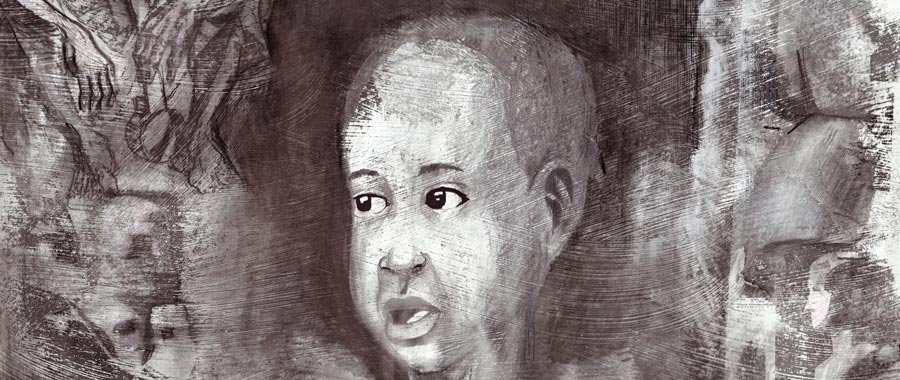Racism, a pernicious social ill, finds myriad manifestations across different cultures and societies. The Baha’i Faith offers a distinctive prism through which we can dissect the intricacies of racism, championing an unwavering commitment to unity and the eradication of prejudice. This discourse sheds light on the Baha’i teachings regarding racism, framed through the lens of courage, and illustrates the multifaceted approaches one can adopt to confront this social malady.
At the core of Baha’i tenets lies the unequivocal belief in the oneness of humanity. This concept posits that all individuals, regardless of race, ethnicity, or background, are part of a singular human family. The Baha’i teachings enjoin adherents to recognize and celebrate this unity as a divine obligation. As one contemplates the task of combating racism, it becomes apparent that such efforts are underpinned by a profound understanding of interdependence among all people. This premise invites individuals to develop a moral courage, galvanizing them to act against discriminatory practices and societal indifference.
A pivotal lesson in confronting racism involves the cultivation of empathy. Empathy transcends mere acknowledgment of differences; it fosters a genuine understanding of the lived experiences of those who endure the harsh realities of prejudice. In practice, this translates into engaging in meaningful dialogues and listening with intent. Through empathy, one can dismantle preconceived notions and stereotypes, laying the foundation for deeper interpersonal connections that transcend superficial barriers. Baha’i teachings exhort individuals to challenge their prejudicial thoughts, an endeavor that demands both introspection and the courage to alter one’s worldview.
Moreover, the Baha’i Faith advocates for education as a pivotal instrument in the struggle against racism. Knowledge empowers individuals to confront myths and misconceptions that perpetuate racial discrimination. Baha’is are encouraged to seek education not solely as a personal advancement but as a communal obligation. Instituting educational initiatives that promote racial harmony can yield profound societal transformations. Schools and institutions of learning are called to incorporate curricula that emphasize human dignity, equality, and a respect for diversity. This holistic educational approach ensures that future generations are imbued with values of inclusivity and understanding.
The concept of justice also occupies a paramount position within Baha’i thought. Justice, as expounded by Baha’i teachings, is inextricably linked to the quest for equity and fairness across racial lines. Activism rooted in the principles of justice conveys a formidable message against racial inequalities. Baha’is are inspired to engage not only in personal acts of service but also in systemic efforts aimed at addressing the socio-economic disparities that often exacerbate racial tensions. This duality of action—personal transformation coupled with social action—embodies a comprehensive response to racism.
In initiating dialogues on racism, it is crucial to confront uncomfortable truths. Acknowledging the historical injustices that have shaped racial dynamics is necessary for fostering healing and reconciliation. Baha’i teachings suggest that courage includes the willingness to reflect on one’s own biases and to grapple with the realities of systemic oppression. Such introspection can provoke feelings of discomfort, but it is through these disquieting realizations that individuals can emerge more enlightened and committed to social justice.
Moreover, a Baha’i approach to confronting racism necessitates an unwavering commitment to advocacy. This entails demonstrating solidarity with marginalized communities and vocately opposing all forms of discrimination. The principles of equity and justice compel Baha’is to stand firm against injustices, whether overt or insidious. Such advocacy may extend beyond one’s immediate community, as the Baha’i Faith encompasses a global vision. Thus, engaging in international dialogues and collaborations can amplify the call for racial harmony across borders.
Furthermore, the role of the family is instrumental in the Baha’i paradigm of confronting racism. The family unit serves as a microcosm where values are instilled, beliefs are formed, and social mores are established. Parents and guardians are urged to educate younger generations about the perils of racism and the virtues of unity. By fostering discussions about race and instilling values of respect and diversity from an early age, families can cultivate a future generation that is adept at dismantling prejudice.
An exploration of courage in the context of Baha’i teachings on racism must not overlook the potential for spiritual growth through adversity. The trials faced in confronting prejudice are avenues for personal development. Cultivating virtues such as patience, resilience, and forgiveness becomes essential in the broader struggle against injustice. The Baha’i framework teaches that growth often emerges from grappling with challenges—an idea that resonates deeply in the encounters with racism, both personal and societal.
In conclusion, confronting racism, according to Baha’i teachings, is a multi-dimensional endeavor that calls for courage, empathy, education, and justice. This comprehensive approach encourages individuals to harness their innate capacities for kindness and understanding as they seek to create a more equitable society. Through commitment to these principles, Baha’is are both empowered and endowed with the moral imperative to participate actively in the dismantling of racism within themselves, their communities, and the world at large. The journey toward a more united humanity is long, but with courage as their guide, individuals can navigate this path toward profound societal transformation.
